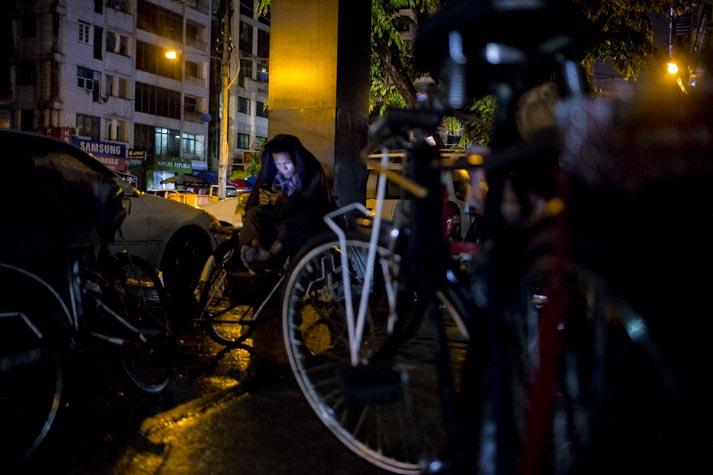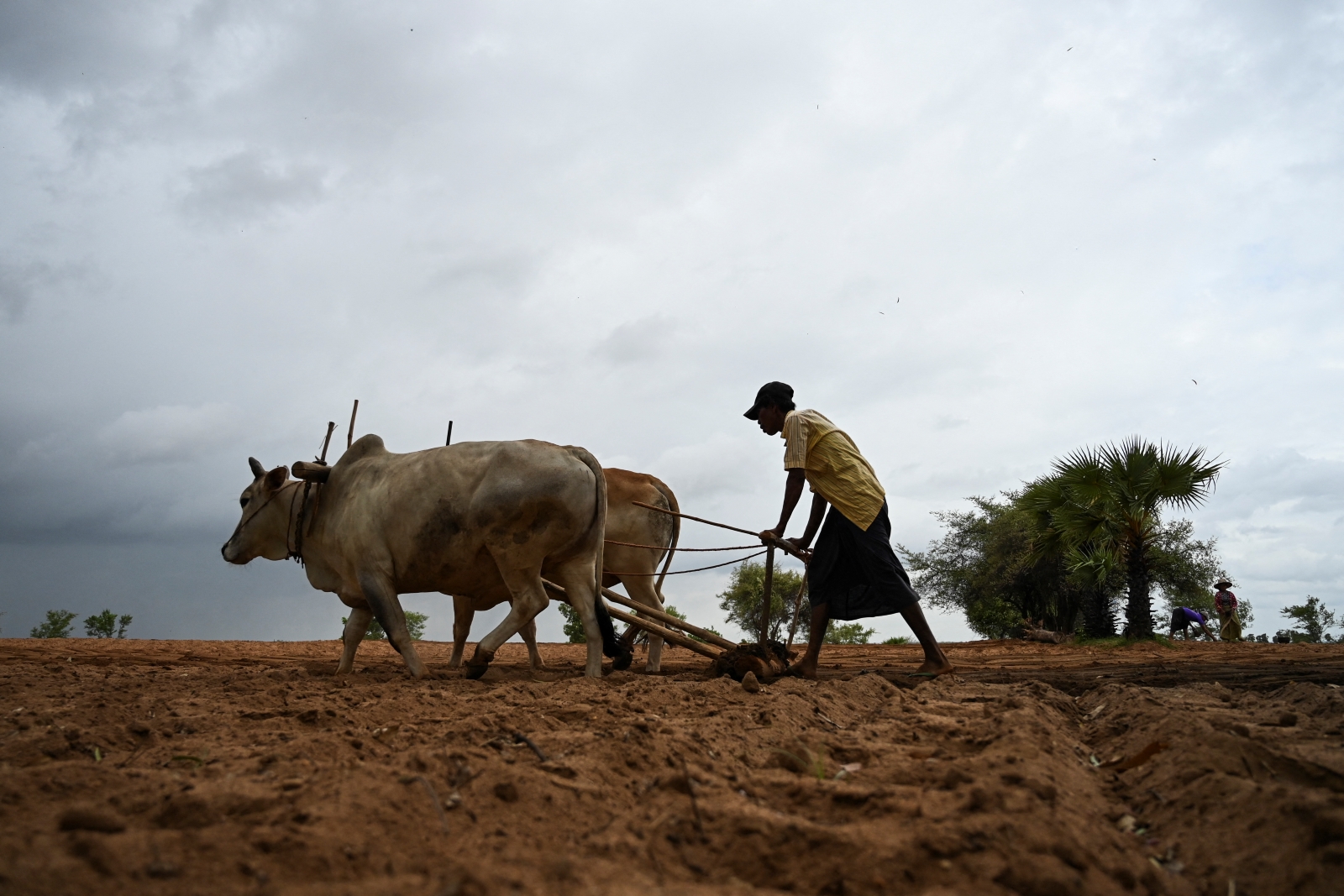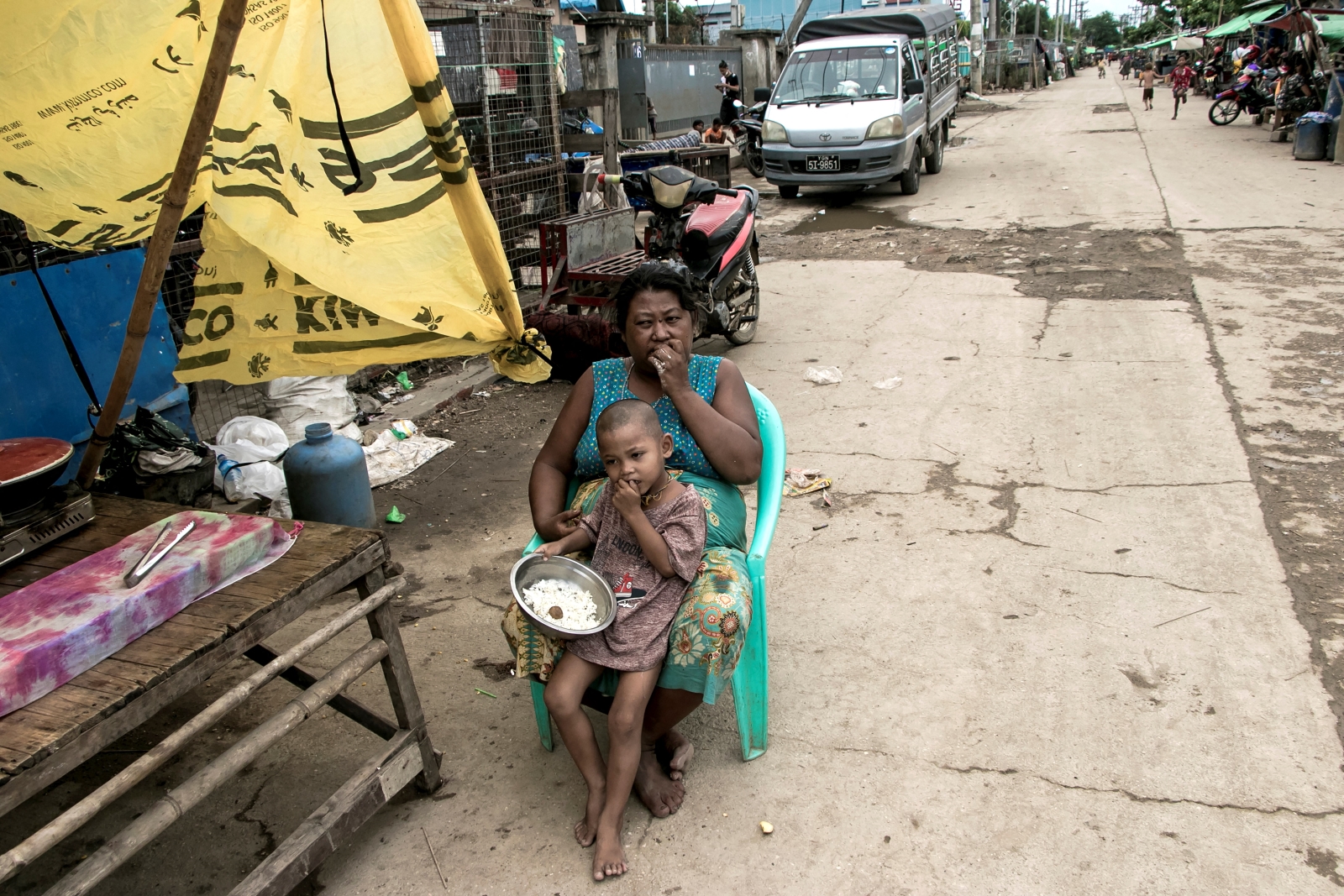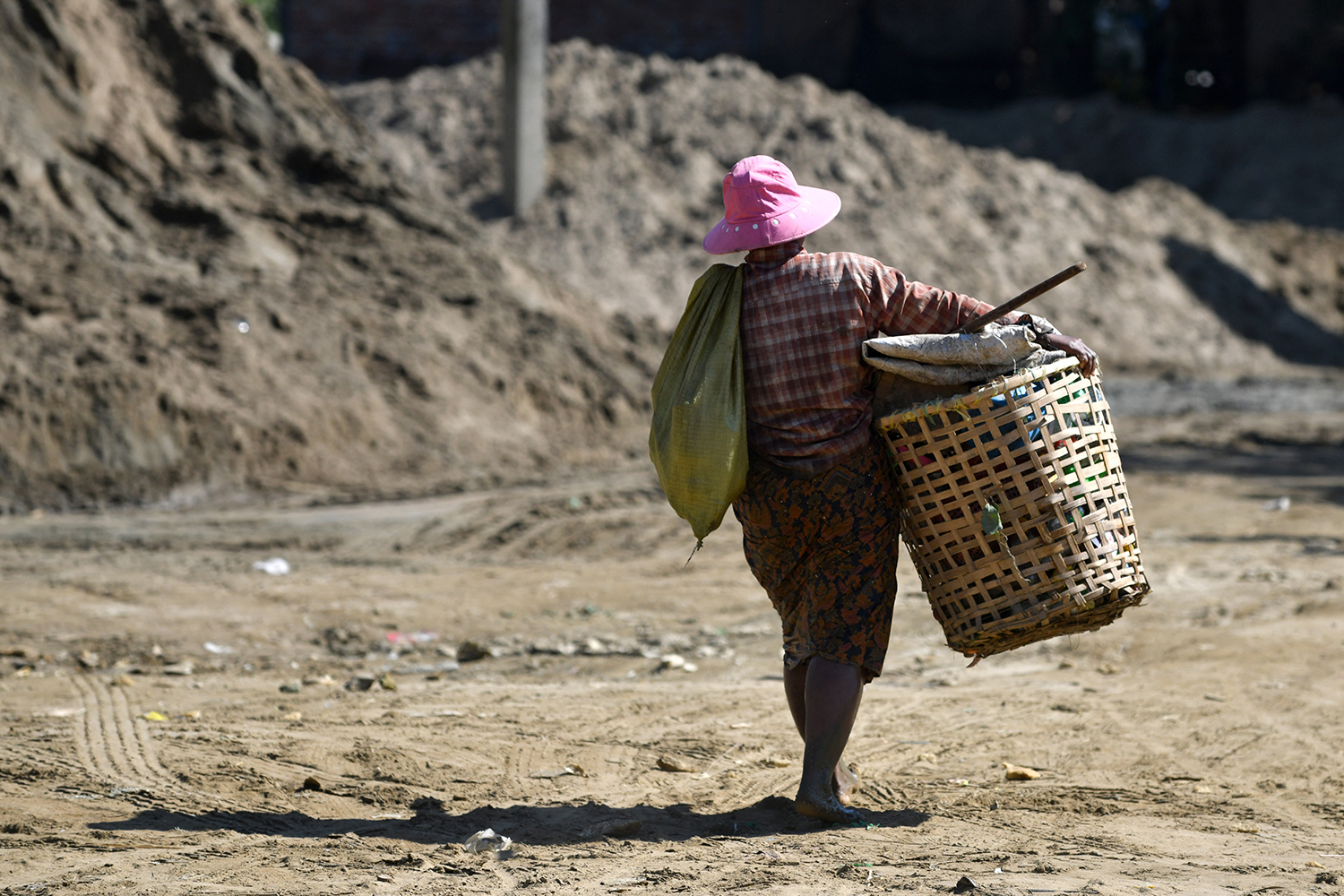As Yangon’s economy booms, many of its residents eke out a hand-to-mouth existence on the fringes of urban life.

A trishaw driver rests near Chinatown in downtown Yangon. (Ann Wang / Frontier)
“I want to be a taxi driver,” said Ko Yanw Kya, 21, resting on the rickshaw he rents with his dad.
It‘s close to midnight and two older rickshaw drivers are asleep, curled up on the passenger seat with lungyis pulled over their heads. A younger driver in a deep sleep, nothing covering his face, is sprawled half-sitting, half-laying on his rickshaw. No sound can wake him.
There are about 10 rickshaw drivers dozing at the intersection of Shwe Taung Tan Street and Maha Bandula Road in downtown Yangon. Is this where they sleep after a long day in the Yangon traffic and monsoon rain?
“No, no, my family rents a place in Kamaryut [Township], but I’m in charge of the night shift,” said slim, well-built Ko Yan Kyaw, who was born in Magwe Region.
Support more independent journalism like this. Sign up to be a Frontier member.
It costs K1,000 a day to rent a rickshaw. Ko Yan Kyaw’s father, who is in his 50s, toils in the morning. Ko Yan Kyaw works at night, making about K4,000.
On such an income, Ko Yan Kyaw’s dream of becoming a taxi driver might be far off, but at least he and his family have a roof over their heads.

Yan Kyaw, right, a 21-year-old trishaw driver. (Ann Wang / Frontier)
For many workers who have migrated to Yangon from other parts of the country, that’s not often the case. A survey in 2009-2010 by the United Nations and the Ministry of National Planning and Development estimated that more than 40 percent of Yangon’s people are poor or extremely poor.
One of them is Daw Min Min, who lives on the footpath in 15th Street, outside a gold shop. Her bed is the tops of the polystyrene foam boxes in which she stores the vegetables she sells to eke out a living. She sells her produce outside the gold shop after it closes at 6pm. For most of the day she runs her business, and watches over her worldly possessions, on the other side of the street.
“I go back to my village in Magwe [Region] once a month,” said Daw Min Min, 57, who has lived in Yangon for the past 20 years but has never rented accommodation in the city. Asked why, she said simply, “No money for rent.”
“I take showers at the public bathroom on 18th Street; it’s only 200 kyat for entry,” said Daw Min Min, proudly sharing her urban survival skills.
A home she can call her own in Yangon is likely to remain beyond the reach of Daw Min Min. A surge in the cost of rent after the change of government in 2011 has eased but the cost of accommodation remains beyond the reach of those living on the margins.
“I have 6 mouths to feed,” said Daw Min Min, indicating the number with her fingers. “My son-in-law disappeared five years ago when an agent came to our village and promised him a job in Myanmar. Same thing happened to my daughter last year,” said Daw Min Min. “None of their telephone numbers work anymore.”
Poverty is one of the main reasons why Myanmar is a source and transit country for human trafficking, though there are no reliable estimates on the number of persons trafficked each year. Trafficking victims are often sold into forced labour or the sex trade, either in Myanmar or in Thailand, China, Malaysia, South Korea or Macau.
Because Daw Min Min has being doing business in Yangon for many years, she is tolerated by Yangon City Development Committee by-laws officers and the residents in the area where she lives.
However, life on the streets can be dangerous.

Daw Min Min, 57, at her fruit stall in downtown Yangon. (Ann Wang / Frontier)
“The other day when I wasn’t paying attention, a thief stole a basket of vegetables worth 45,000 kyats [about US$40],” said Daw Min Min, who cried for days until a neighbouring fruit seller helped out with some money for her to continue her business.
Daw Min Min does not worry about the rain, because she shelters under a big, rainbow-coloured umbrella, which doubles as a clothes hanger.
Flooding is not a problem, either, because the water level does not rise higher than her boxes and eventually drains away.
Daw Min Min’s biggest hardship in Yangon has been loneliness, but that changed recently when she returned from a visit to Magwe with her grandson.
He was in third grade but is living with her on the street.
It was getting late. Daw Min Min rearranged her cabbages and cucumbers to make enough space between her boxes where she and her grandson could sleep.







